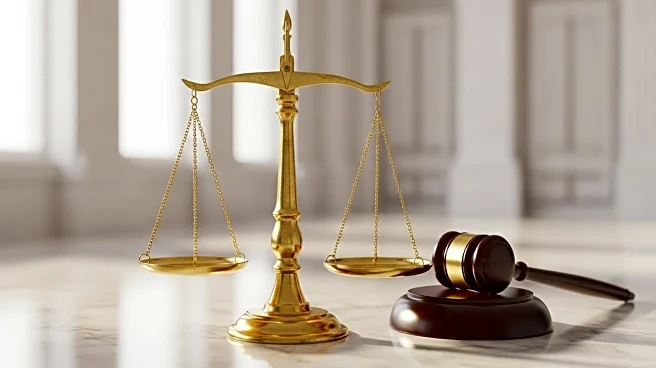What's Happening?
Nicolas Sarkozy, the former President of France, has been sentenced to five years in prison for criminal conspiracy related to financing his 2007 presidential campaign with funds from Libya. Despite his appeal, the Paris court has mandated immediate incarceration due to the severity of the offense's impact on public order. Sarkozy, who served as France's president from 2007 to 2012, has denied the charges, claiming innocence and labeling the verdict a scandal. The court found that Sarkozy, along with his associates, engaged in secret meetings with Libyan officials to secure campaign funds, a move that has led to his conviction. Sarkozy's appeal does not suspend the prison sentence, and he is expected to be incarcerated under special conditions reserved for high-profile inmates.
Why It's Important?
The sentencing of Nicolas Sarkozy marks a significant moment in French political history, as he becomes the first former president of modern France to be sentenced to actual prison time. This development underscores the judiciary's stance on political corruption and campaign financing violations, potentially influencing future political conduct and campaign regulations in France. The case also highlights the ongoing scrutiny of political figures and the legal consequences of illicit activities, which could deter similar actions by other politicians. Sarkozy's conviction may impact his influence in conservative circles and alter the dynamics within French politics, especially as the country approaches future elections.
What's Next?
Sarkozy is expected to be incarcerated in a special area of La Santé prison in Paris, reserved for high-profile inmates. He will have the opportunity to file a release request to the appeals court, which will be processed within two months. An appeal trial is anticipated to occur next spring, which could potentially alter the outcome of his conviction. The case may continue to spark debate over the fairness of the judicial process and the implications of immediate incarceration despite an appeal. Sarkozy's supporters may rally for his release, while critics may push for stricter enforcement of campaign financing laws.
Beyond the Headlines
Sarkozy's conviction raises questions about the ethical standards in political campaigns and the influence of foreign funds in national elections. The case may prompt discussions on the need for transparency and accountability in political financing, potentially leading to reforms in campaign finance laws. Additionally, the involvement of Libyan funds in Sarkozy's campaign highlights the complex geopolitical relationships and the potential for foreign interference in domestic politics. This development may encourage other nations to examine their own campaign financing practices and strengthen regulations to prevent similar occurrences.










